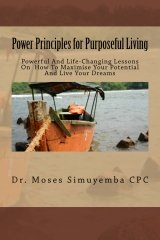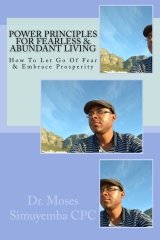Decision Making - the Right Way
Decision making - Introduction
Do you have the right principles for making good decisions or are you depending on the throwing of dice? Is there a right and a wrong way to make a decision?
Decision making is an important skill which any one who wants to be a leader or who wants to achieve anything great in life must have. It is the mark of great leadership to be decisive and to make the right decisions at the right time for the right reasons. The opposite is also true: an inability to be decisive and to make the right decisions can be a huge liability and a great cause of failure. So how do you become a decisive person with a knack for making the right decisions?
Understand the basics
One very important starting point is to understand the essence of decision making. It was during studying management accounting that I came across the concept of sunk costs. This was in the context of decision making for business purposes. The principle underlying decision making in management accounting is that management decisions can only affect the future.
Therefore in making decisions managers require information about future costs and revenues which would be affected by the decision under review, and they must not be misled by events, costs and revenues which are in the past and about which they can do nothing. Sunk costs, which are in the past, are therefore considered irrelevant in decision making.
It seemed pretty obvious and common sense when I read it. But it occurred to me that quite a number of times I myself had not followed this simple principle. It further occurred to me that the principle is in fact not only applicable to the management scene, but more or less to any area of life. It brought out several very important ideas and concepts about decision making, dealing with the past and planning for the future:
You cannot change the past
Firstly, you must accept the fact that you cannot change the past. No matter how good a decision you make, it will have no effect on the past. Yet how often we stay focused on the past and fill our minds with regret. People have a habit of running things in their minds over and over again. This can be bad things as well as good things. Our past mistakes often haunt us to an extent where we seem unable to move ahead in particular areas of our lives.
Our past good times and successes can also be hindrances if we focus too much on “the good old days.” There are many people that are stuck, reminiscing on the past and wishing they could have that kind of life again. If you are stuck in the past you will not be totally in the present and you will not see the good future ahead of you.
Similarly, do not let your past successes make you overconfident and complacent in making decisions. Always ensure that you have all your facts and plan as thoroughly as you can. Beware of changes in the environment and circumstances in which you are living and operating.
The future is all you can affect
Secondly, the decisions you make can only affect the future. The practical application of this is simple, though at times difficult to appreciate. In making decisions, you should not consider how that decision will affect your past actions or use your past results as a basis for decision making. You should only consider what effect that decision will have in the future.
As an example, I have had several people confide in me that they appreciate what I write and see a lot of truth in it, but they feel that they have “wasted” so much time in their lives doing the wrong things. This makes it hard for them to start doing the right things because they feel that they have lost so much time already. The right way to approach such a situation would be to consider instead, the difference that doing the right things would make in their lives one or several years from now. The future benefit of the decision is always what should be considered.
Consider the relevant factors only
Thirdly, in making a decision you need only consider the most relevant factors. Clarity of thought is important to decision making. A cluttered perspective of things and considering too many factors can be a hindrance to good decision making. This often arises if you do not have a clear understanding of the issues surrounding your decision or if you have incomplete information. The clearer your understanding of a situation, the easier it will be for you to analyze it and pick out the core issues you should be considering in making your decision.
Two things to remember
Remember that ultimately the two important factors you should be thinking about in making any decision concerning your goals and your dreams will be:
- The future cost of the decision. This may be a monetary cost or it may be a cost in the form of time, energy or emotional input as examples. The opportunity cost of your decision is also an important consideration. By following one course of action you are giving up on another course of action.
This rejected course of action is what is termed the “opportunity cost.” If you chose to marry Jane, who is the girl of your dreams, then Jennifer, who was your second choice, would be the opportunity cost.
- The future benefit of the decision. What will be the positive desired outcome of the decision? It may be a monetary benefit or other benefit. How will the decision help you to achieve your goals and your dreams?
Decision making - conclusion
Narrowing down the decision making process to these two basics will assist you to stay focused and to be decisive. Develop the habit of making the right decisions at the right time for the right reasons.
You are all you can be. Go on and be it.
Return from Decision Making to Newspaper Articles on Motivation
HOME
Other Books By Dr. Moses:
Power Principles For Purposeful Living
"Powerful And Life-Changing Lessons On How To Maximise Your Potential And Live Your Dreams"
Power Principles for Fearless & Abundant Living
"How To Let Go of Fear and Embrace Prosperity"
In the POWER PRINCIPLES series of books, Dr. Moses Simuyemba, "Africa's Success Coach", shares his knowledge, experience and insight to help you in overcoming your personal challenges and limitations and inspire you towards the life you desire and deserve: a life of greater purpose, free of fear and full of abundance.


